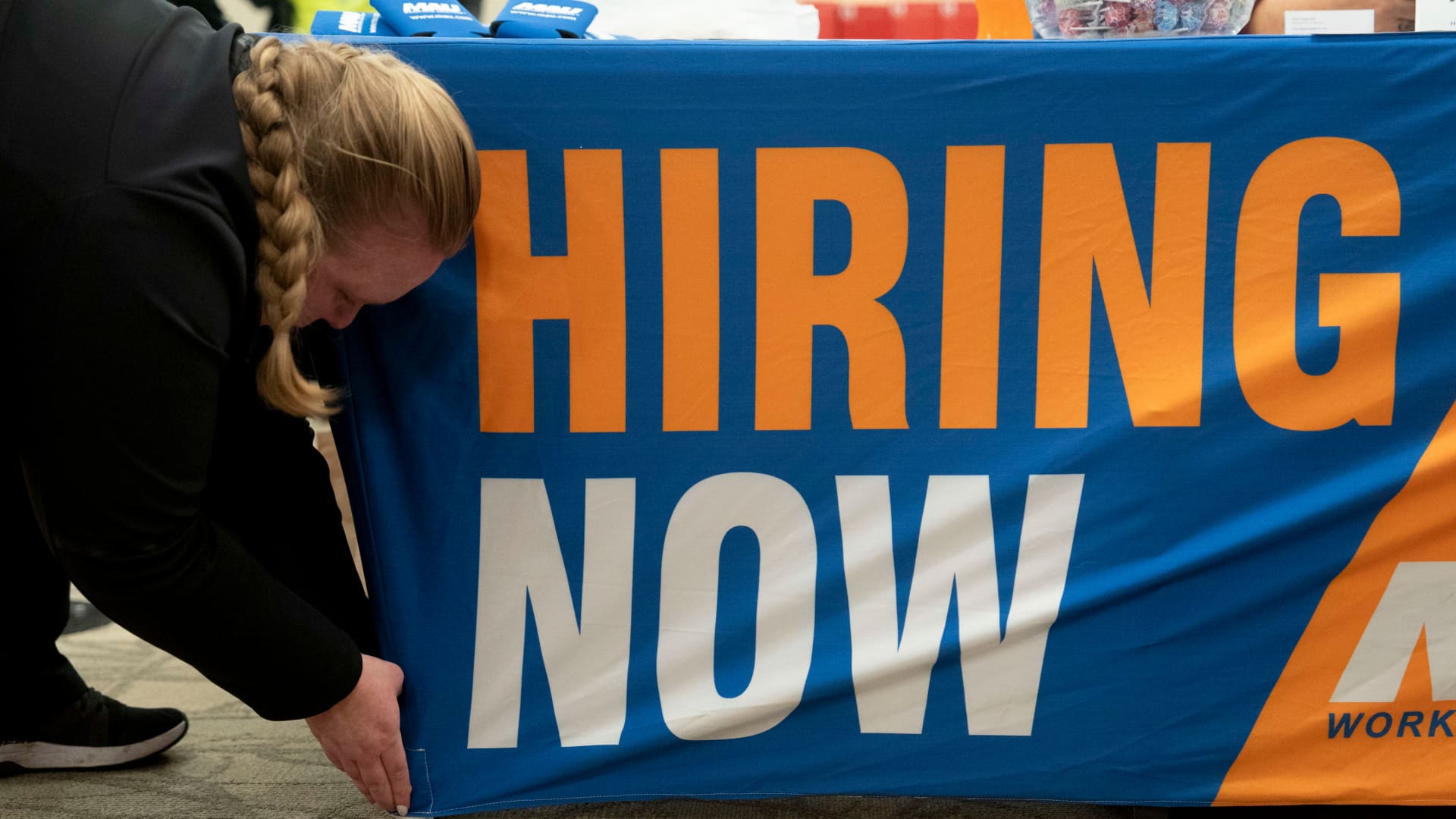Private sector job creation eased more than expected in December while wages grew at the slowest pace in nearly three-and-a-half years, payment processing firm ADP reported Wednesday.
Companies added a seasonally adjusted 122,000 jobs for the month, down from 146,000 additions in November and less than the Dow Jones consensus forecast for 136,000. It was the smallest increase since August.
On wages, pay grew at a 4.6% rate from a year ago, the slowest pace since July 2021.
“The labor market downshifted to a more modest pace of growth in the final month of 2024, with a slowdown in both hiring and pay gains,” ADP chief economist Nela Richardson said.
Though there are signs hiring is slowing, there have been few indications to indicate that layoffs are increasing.
The Labor Department on Wednesday reported that initial claims for unemployment insurance totaled just 201,000 for the week ending Jan. 4. That was well below the 215,000 estimate and the lowest level since February 2024.
The reports come two days ahead of the closely watched nonfarm payrolls count from the Bureau of Labor Statistics. Economists polled by Dow Jones expect that report to show a gain of 155,000, which in itself would mark a sharp slowdown from November’s unexpectedly strong 227,000. The ADP and BLS numbers often differ, sometimes by large margins.
Federal Reserve policymakers are watching the jobs numbers closely as they plot their next moves for monetary policy. While most Fed officials have said they believe the labor market is solid, they are looking to keep interest rates less restrictive so as not to threaten job creation.
They also have expressed more confidence that inflation has stabilized though it is still above the Fed’s 2% target. The ADP numbers could add to the case that wages aren’t pressuring inflation.
From a sector standpoint, job creation was strongest in the education and health services category, which added 57,000 positions. Other significant gains came in construction (27,000), leisure and hospitality (22,000) and financial activities (12,000).
Several sectors reported job losses, including manufacturing (-11,000), natural resources and mining (-6,000) and professional and business services (-5,000).
Almost all of the jobs came from big companies with more than 500 workers, which amounted to 97,000.

 Accounting1 week ago
Accounting1 week ago
 Economics1 week ago
Economics1 week ago
 Personal Finance1 week ago
Personal Finance1 week ago
 Accounting1 week ago
Accounting1 week ago
 Finance1 week ago
Finance1 week ago
 Economics1 week ago
Economics1 week ago
 Economics1 week ago
Economics1 week ago
 Economics1 week ago
Economics1 week ago






















